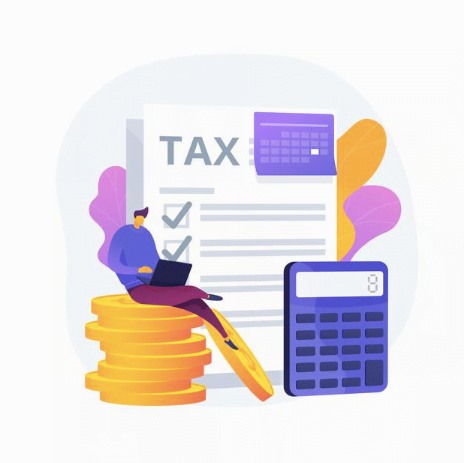Are you a salaried person? Looking for a way to save income tax in India? then this article is for you. In India, the income tax deduction happened at the time of salary disbursement. The employer has to deduct the TDS (Tax Deducted at Source) from the salary of the employees every month.
This is done to ensure that there is no sudden deduction of tax at the end of the year. So the income tax is deducted every month from the salary paid to the employee and the same will be deposited to the income tax department.
Now as an employer if you want to know how much total income tax is deducted from your salary, the same can be seen in your Form 16 issued by the employer every financial year.
Income Tax Slab for Salaried people in India
As per the budget 2019-20, there are now 2 options for employees to choose from for claiming the income tax deduction. I have written a detailed article on the same, you can check the same here.
Below is the income tax slab comparison of old vs new slabs.

Now there are few avenues by which you can save income tax in India. We will check the one by one.
How to Save Income Tax in India?
If you are a salaried employee then here is the list of the investment avenues through which you can save income tax in India.
The first and most popular is clause no. 80C of income tax. Most of the employees have knowledge about it and are using maximum to save income tax. Let’s see what all covers under section 80C of income tax.
What is Clause 80C of Income Tax?
Section 80C of the Income Tax Act of India is a clause that points to various expenditures and investments that are exempted from Income Tax. It allows for a maximum deduction of up to Rs. 1.5 lakh every year from an investor’s total taxable income.
Investment Option – Section 80C
Below is the list of the investment options that an employee can do to save tax. Remember the maximum investment deduction limit is ₹. 1.5 lakh/year. Anything invested above this amount will not be deducted from income.
Let’s have a look at the investment options available under section 80C of Income Tax.
- Public Provident Fund (PPF)
- Employer’s share in Provident Fund
- NSCs
- Payment towards life insurance premium
- Children’s tuition fees
- ELSS
- ULIPs
- Senior Citizen saving scheme
- Sukanya Samrudhi Scheme
- Home loan repayment (Principal amount)
- Subscription to notified bonds of NABARD
Above are the major investment options under section 80C of the Income Tax in India. Maximum investment amount up to ₹ 1.5 lakh is eligible for an income tax deduction. Anything above this is not eligible for an income tax deduction.
This 80C clause is the most used and popular among the salaried people for saving income tax.
Health Insurance Premium – Section 80D
Under this section, the employee can get a deduction of ₹. 25000 for the self and family. For senior citizens, the exemption amount is ₹. 50000. So in the case where the employee is paying a premium for the family and senior citizens then the maximum exemption amount is ₹. 75000.
Employer need to produce the premium paid receipt/proof for claiming the deduction.
Interest on Home loan – Section 80EE
Interest paid for the home loan amount is tax exempted up to ₹. 2 lakhs per financial year. So if you have taken a home loan there will be a dual benefit for a tax deduction. 1) Home Loan Capital repayment up to ₹. 1.5 lakh, 2) Home Loan Interest repayment up to ₹. 2 lakhs.
Interest Earned on Saving Account – Section 80TTA(1)
Interest earned on the saving account is tax exempted up to ₹, 10000. anything earned above this amount is taxable as per your income tax slab. For senior citizens, the exemption amount is ₹. 50000.
Education Loan Repayment – Section 80E
Repayment of interest towards the education loan is subject to tax exemption under section 80E. There is no cap on the repayment amount, so entire amount is tax exempted. However, the exemption can only be taken for the interest paid for the year of 8 years.
Contribution to NPS – Section 80CCD(1B)
Investment is done in NPS up to ₹. 50000 is tax exempted under section 80CCD(1B). This is over and above all the investment options that are mentioned above.
HRA (Rent Paid) – Section 80GG
If you are staying out side your home town and paying rent, the same is eligible for tax exemption under section 80GG. There are 3 criteria for deciding the exemption amount of HRA.
- Rent paid minus 10% of total income
- ₹. 5000 / month
- 25% of total income
The least amount paid for the above will be taken as HRA and will be eligible for tax exemption.
Medical Treatment of Handicapped Dependent – Section 80DDB
If you are paying for medical treatment of any handicapped dependent in your family, then the maximum amount up to ₹. 40000 is eligible for tax exemption.
Here the employee needs to produce the medical certificate of the dependent for whom the treatment charges are paid.
Contribution to Political Parties – Section 80GGC
Amount paid to the political party as a donation can be claimed as tax exemption. The employee needs to produce the payment receipt of the donation made to the political party. The complete amount paid to the political party can be claimed as tax exemption. Any amount paid in cash will not be eligible for exemption.

